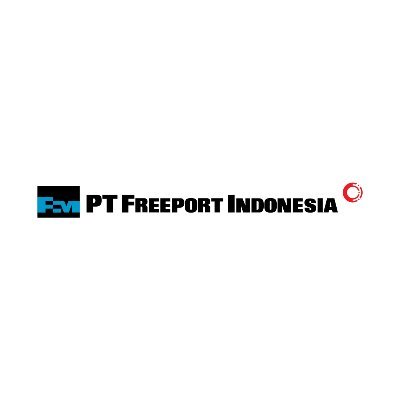
Wednesday, January 10, 2024, the Faculty of Public Health (FPH) Universitas Indonesia (UI) held an open session for the Promotion of Doctor of Public Health with the promovenda Tri Fajari Agustini with a defended dissertation entitled “Modeling Research Capacity Based on the Characteristics of Clinicians and Leadership in Hospitals Type Two General Center (Fatmawati General Hospital and Prof I.G.N.G Ngoerah General Hospital Denpasar).”
A study in Japan showed that activities in increasing research capacity in hospitals were mostly carried out in 62% of clinical or transitional research, 14% of research in the field of public health and preventive measures, 11% of medical education, and 9% of research in the field of basic science. Research capacity is the ability to define problems, set goals and priorities, conduct sound scientific research, build sustainable institutions, and identify solutions to key problems. Good research capacity has an important role in the quality of health services and the result is that it can reduce the mortality rate in the hospital itself.
The Clinical Research Unit (CRU) is a non-structural work unit that includes all functional hospital medical staff as members. This unit has the function of organizing research activities, strategies for increasing research at the hospital level, and utilizing research in hospitals. This research program designed by the Ministry of Health (Kemenkes) has been widely carried out and formulated in research program planning at vertical hospitals and Regional General Hospitals (RSUD) in Indonesia. However, based on the 2022 report from the Ministry of Health (Kemenkes) of the Republic of Indonesia (RI), it is stated that not all research has been carried out in an organized manner in implementation.
The research conducted by Tri Fajari aims to build research capacity modeling based on the characteristics of clinicians and leadership in type II RSUPs in Indonesia, namely Fatmawati Hospital and Prof. RSUP. I.G.N.G Ngoerah Denpasar.
The research was carried out using mixed methods, namely the use of quantitative and qualitative methods, sequential explanatory mixed methods. Quantitative research was carried out using a survey method using the Research Capacity and Culture (RCC) research instrument with questionnaires distributed via electronic link to specialist doctors and specialist dentists at RSUP Fatmawati and RSUP I.G.N.G. Prof. Ngoerah Denpasar. The qualitative research carried out aimed to analyze barriers and motivations in research activities at RSUP type II, as well as conducting in-depth interviews with research policy makers at the hospital level and the Ministry of Health. The data collection technique used for qualitative research is convenience sampling (a non-probability sampling method where units are selected based on the respondents’ willingness to be involved in the research). Research capacity focuses on exogenous variables which include individual characteristics and leadership as well as endogenous variables which include research capacity (individual, team, and organizational capacity).

The modeling of research capacity as a variable in this research was based on Cooke’s theory, 2005, which was then modified again with the influence of individual characteristics and leadership. The research capacity at two type II RSUPs in Indonesia obtained results in the high category with a tendency for higher scores at Prof. RSUP. I.G.N.G Ngoerah Denpasar. The average leadership score between the 2 hospitals did not differ, however several indicator items of individual, team and organizational capacity were found to have differences in average scores. Profession and education are finally influential individual characteristics. The biggest obstacles found in both hospitals were insufficient funding, lack of research time, and prioritization of other workers’ roles.
This research capacity modeling can be implemented in the RSUP type II environment in Indonesia to realize high research capacity and foster a research culture. This modeling can address research gaps identified at the individual level in the assessment of research capacity needs. Assistance from external parties or organizations needs to be provided because team/organization capacity is the variable with the highest coefficient value.
The research conducted by Tri can provide a concept that can be used as a framework for implementing research that should be carried out in hospitals. Apart from that, it can also be scientific evidence that supports recommendations for making evidence-based policies regarding research capacity in type II hospitals.

At the end of the session, the chairman of the session delivered the decision that Tri Fajari Agustini was declared to have passed and succeeded in obtaining a doctorate in the field of Public Health (IKM) as the 9th IKM doctoral graduate of 2024, the 305th IKM doctoral graduate, and a doctoral graduate at FPH UI 391st and achieved cum laude predicate with a GPA of 3.83.
The session was chaired by Prof. Dr. Dra. Dumilah Ayuningtyas, M.A.R.S. as Chair of the Session, with Promoter Prof. Dr. Amal Chalik Sjaaf, S.K.M., Dr.PH., and Co-Promoter Prof. Dr. Drg. Wahyu Sulistiadi M.A.R.S. and Dr. Dr. Harimat Hendarwan, M. Kes. The examining team in the trial was Dr. Drs. Sutanto Priyo Hastono, M.Kes.; Dr. Dra. Lucia Rizka Andalusia, Apt., M.Pharm., M.A.R.S.; Dr. dr. I Putu Pramana Suarjaya, Sp.An-TI, M.Kes., Subsp.M.N. (K), Subsp.N.An (K), F.I.P.; and Dr. Drs. Nana Mulyana, M.Kes., QGIA. (ITM)

